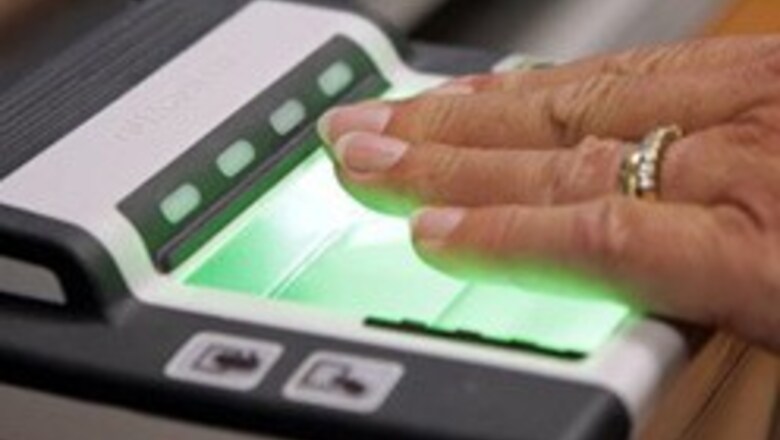
views
Brussels: A program being launched at 10 US airports this year will expand existing identification checks for visitors, including requiring 10 digital fingerprints, but still operate under strict privacy rules, a senior US official has said.
The border checks could also soon include other biometric data, such as facial and eye retina scans, as the US upgrades security at its ports, airports and border crossings, said P.T. Wright, operations director for the Department of Homeland Security's US-VISIT Program.
Wright, who was in Brussels to explain the new system to EU officials, said the pilot project would be launched later this year, expanding the current program that calls for taking two fingerprints and facial photographs of visitors to the United States.
The pilot program will affect travelers from countries participating in the US Visa Waiver Program, as well as those coming from nations where visas are required, he said.
Airports chosen for the pilot project include Boston Logan International, Chicago's O'Hare, George Bush Houston Intercontinental, Detroit Metropolitan Wayne County, Hartsfield-Jackson Atlanta International, Miami International, John F. Kennedy International, Orlando International, San Francisco International and Washington Dulles International.
European Union data protection officials have raised privacy concerns in the past about the US system and a similar fingerprint system being set up by EU nations.
Wright said data would be collected on visitors under strict US privacy protection rules. But he added the prints are checked against US security watch lists and that the FBI and the CIA also have access to the prints.
The 10-print scans would be ''virtually 100 percent match accurate,'' he said.
''We are going to know that that’s you,'' Wright said. Adding other biometric identifiers _ such as facial or retinal scans _ could help better rule out fraud, he said.
The current two-fingerprint arrival system is being used in 115 airports, 15 seaports and 154 land border checks. About 100 million fingerprints have been taken so far, and more than 34,000 people whose names showed up on U.S. watch lists were denied entry, Wright said.




















Comments
0 comment